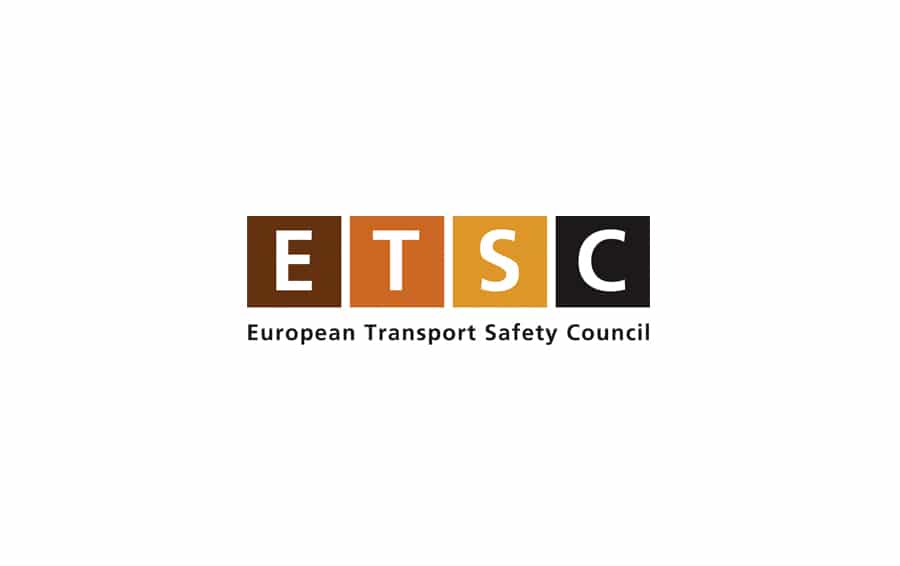The ETSC is a Brussels-based independent non-profit making organisation dedicated to reducing the numbers of deaths and injuries in transport in Europe. ETSC’s Road Safety Performance Index (PIN) programme receives financial support from the German Road Safety Council (DVR), Toyota Motor Europe, the Swedish Transport Administration, the Norwegian Public Roads Administration and CITA – the International Motor Vehicle Inspection Committee. The current EU approach to assessing whether drivers are medically fit to hold a licence needs substantial revision, according to a new report by the European Transport Safety Council.
The report examines the current state of play in European countries regarding the assessment of medical fitness to drive, with reference to current EU rules. The EU is currently reviewing the Directive on driver licensing and a revised legal proposal is expected in 2022.
The report shows that the starting point for many EU countries is still age-based assessment despite the fact that studies have concluded that specific medical conditions, substance abuse, mental disorders, epilepsy and diabetes are more important factors than age when it comes to medical fitness to drive. Mandatory age-based screening of older drivers has not been shown to be effective in preventing severe collisions. It may even have a negative safety impact, as older drivers with revoked licences due to poor health become vulnerable road users. ETSC is recommending that national governments should make wider use of conditional licences to allow those who may be at slight risk to continue to drive under certain circumstances.
A lack of good data on the role played by medical conditions and disorders in road collisions is also a significant problem, according to the report authors. Pan-European in-depth collision investigation data could help but currently only a small number of countries systematically collect such data.
One important exception is Finland, where every fatal collision is followed-up with an in-depth investigation. Between 2014 and 2018, Finnish investigators attributed the cause of a fatal collision to driver illness in 16% of cases. Cardiovascular diseases were the most common risk factor where disease was known to have been an immediate contributor to the collision. Of the 141 fatal collisions known to have been caused by the illness of the driver between 2014-2018, 119 were due to heart disease or hypertension.
Many of the countries surveyed require some form of medical check when first applying for a licence to drive a car, beyond the sight test required by the EU rules. But there are vast differences in how these checks are carried out among the different countries. The medical test required when acquiring a licence for the first time can vary from a self-assessment form filled out and signed by the applicant, to a medical examination carried out by a family doctor or a medical examination carried out by a specialist doctor or centre. ETSC is recommending that the EU and national governments should consider adopting a standardised screening process based on international best practice for use across all Member States.
Medical fitness to drive is a matter of judgement as well as science but the levels of training or guidance provided to those assessing medical fitness to drive in European countries vary substantially. A clear set of guidelines issued to those assessing medical fitness to drive is known to have a positive effect. ETSC recommends stressing the role of General Practitioners (GPs) as the primary point of call for identifying those who may be at-risk. ETSC is also calling on national governments to develop and mandate evidence-based training programmes, which have been shown to be effective and are accepted in particular by family doctors.
Current EU rules explicitly rule-out the issuing of driving licences to people who are alcohol dependent. While this may sound sensible because 25% of all road deaths in the EU are estimated to be alcohol related, drink-driving offenders and alcohol-dependent people can end up ignoring driving bans and getting behind the wheel anyway. For alcohol-dependent people, the current EU rules effectively block access to one of the most effective tools for preventing repeat drink-driving offences: alcohol interlock rehabilitation programmes. These enable drink-driving offenders to drive as long as their vehicle is fitted with a device that prevents them from driving after consuming too much alcohol. ETSC says EU rules should allow for alcohol-dependent people to be included in alcohol interlock programmes and carry on driving under these restrictions.
When it comes to driving under the influence of medication, less is known about the effects than for alcohol. ETSC recommends applying the existing EU ‘DRUID’ categorisation for labelling relevant medicines and stressing the role doctors can play in advising their patients on the impact of prescription medicines on driving.
Download the full report at: https://etsc.eu/pinflash40



